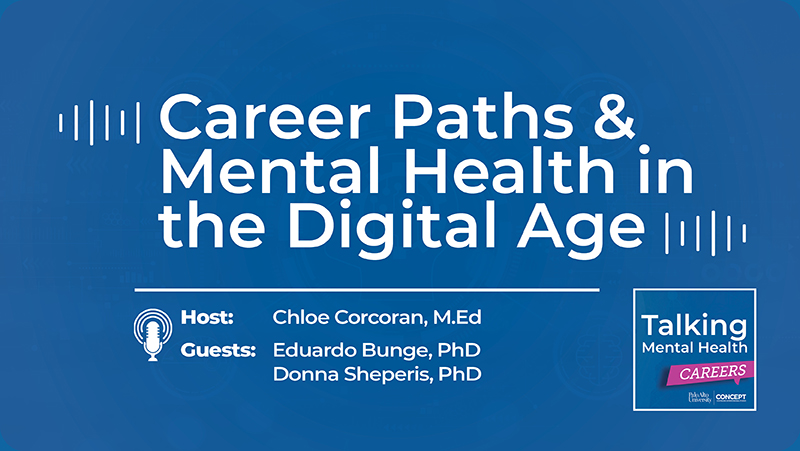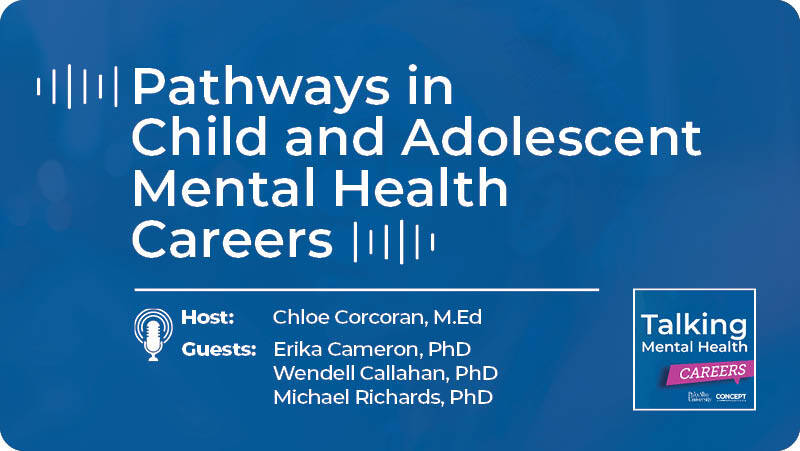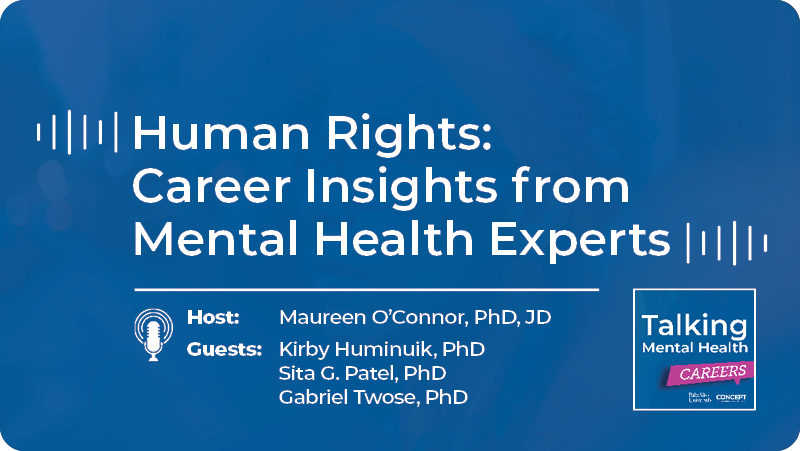Episode 1 | Career Paths and Mental Health in the Digital Age
"Career Paths and Mental Health in the Digital Age" delves into the increasingly digital world of mental health practice. With global events impacting many people on a personal level and the rise of tele-mental health, technology has become an integral part of therapeutic methods. Tune in to our in-depth discussion with leading experts who are at the forefront of this digital evolution.
We delve into the ethical implications of AI in mental health, explore the role of chatbots in therapy, and discuss the advancements in tele-mental health. Aspiring professionals and seasoned practitioners alike will find guidance on career paths in this burgeoning field. Don't miss this enlightening conversation on the merging lines of mental health and technology.
Join us on an inspiring journey with 'Talking Mental Health Careers' brought to you by Palo Alto University and its Division of Continuing & Professional Studies.
About Our Host
Chloe Corcoran (She/Her) serves as the inaugural Director of Alumni Relations for Palo Alto University. Recently, she was cast in the first of its kind audio reality show, “BEING: Trans” which explores the lives of a group of transgender people living in Los Angeles. Articles about this project have appeared in the New York Times, among other media outlets, and she has appeared on a billboard in Times Square along with being honored by the LA Dodgers for her activism. She is a 2004 graduate of the University of Rochester where she played 4 years of varsity football and then served as an assistant coach. Chloe earned her Master’s degree at Northeastern University and is currently studying part-time toward a Ph.D. in Higher Education Leadership, where her work focuses on equity and inclusion. Chloe was the first out transgender woman to be named a “40 Under 40” award winner in her hometown of Rochester, NY. In 2019, she was one of 10 people selected from a nationwide pool of candidates for a Victory Empowerment Fellowship from the Victory Institute, and has held multiple leadership positions on non-profit Boards. Chloe has spoken at multiple community events, co-hosted 2 radio shows, and enjoys photography in her spare time.
About Our Guest
Guest 1 | Eduardo Bunge, PhD
Dr. Eduardo Bunge is a Professor in the Department of Psychology at Palo Alto University (PAU). Dr. Bunge directs the Children and Adolescents Psychotherapy and Technology (CAPT) Research Lab, and is Associate Director for the International Institute of Internet Interventions for Health at Palo Alto University. His works focus on integrating technology and mental health, and his most recent contributions were in Artificial Intelligence-Based Chatbots for depression, anxiety, and parenting in English and Spanish. He is also the Director of the Master of Science in Psychology at PAU. He was born and educated in Argentina, earned his undergraduate degree at the University of Buenos Aires, and received his Ph.D. in psychology from the University of Palermo (Argentina). Dr. Bunge has more than 80 publications, including five clinical books and more than 70 peer-reviewed articles and chapters.
Guest 2 | Donna S. Sheperis, PhD
Dr. Donna S. Sheperis is the Chair of and Professor in the Counseling Department and Director of the eClinic at Palo Alto University. A Licensed Professional Counselor and Board Certified Telemental Health Provider, Donna has been a practicing clinician for over 30 years with 7 years exclusively in the provision of telemental health services. An ethicist by training. Donna is a former member of the ACA Ethics Committee and currently serves on the ACA Ethical Appeals Panel. As Director of PAU’s eClinic, she has been instrumental in bringing educational and clinical opportunities to psychologists and therapists in training in traditional telemental health as well as the use of adjunctive digital therapeutics, including an AI supported supervision model, to enhance client care. Donna’s research in digital mental health led to publishing Telehealth Standards of Care in 2020 to meet the needs of the burgeoning discipline of ethical distance practice. She continues to research and practice in the use of mental health technology to better meet the needs of clients and clinicians.





















